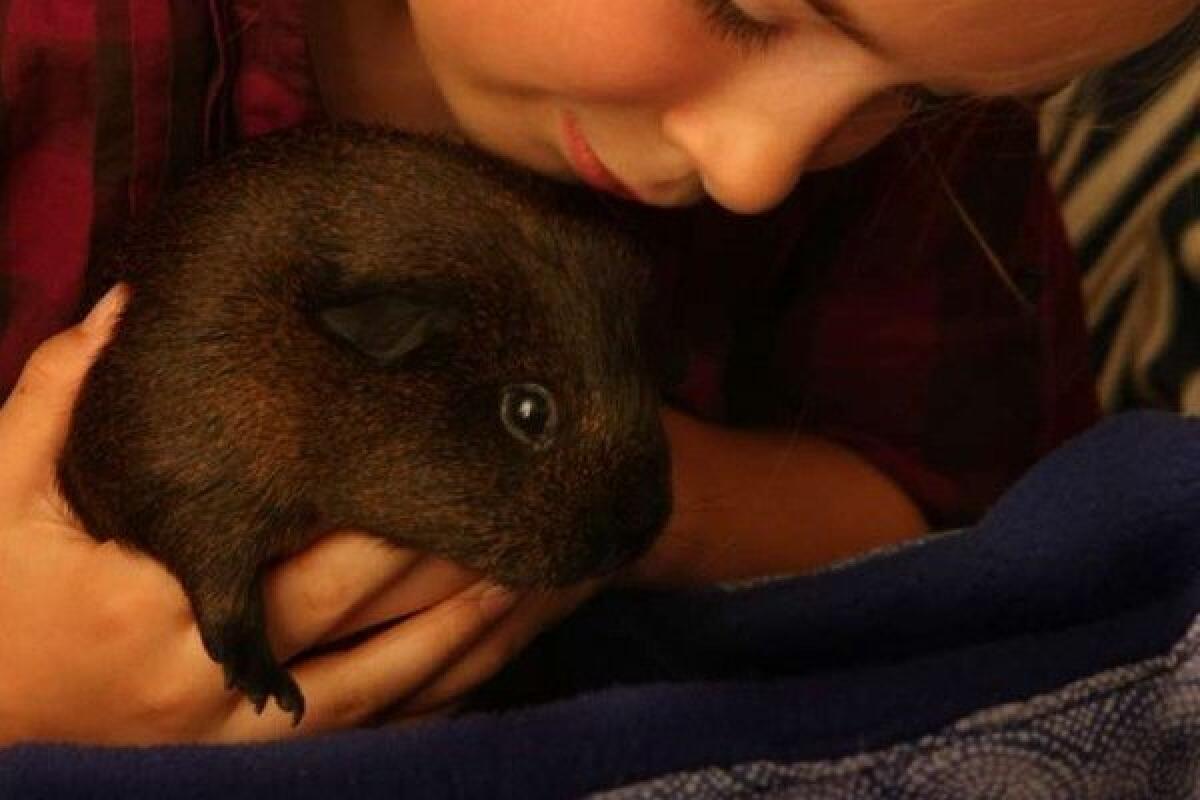Teacherâs pet? Guinea pigs may help autistic kids in classroom

Kids with autism spectrum disorder could have a new ally in the classroom: animals. Autistic children who played with guinea pigs rather than toys were more talkative, made more eye contact and displayed a more positive attitude, according to a study in the journal PLoS ONE.
The experiment, which tested 99 children in 15 classrooms with guinea pigs, found that animals could help students with autism improve relationships with their peers and teachers, and could help them perform better in school.
For this study, researchers from the University of Queensland in Australia and Purdue University in Indiana split the 99 students into groups of three, each one containing one child with autism. In a series of 10-minute sessions spaced over several weeks, they taped the children interacting with adults and with their peers while either playing with toys or with guinea pigs.
The researchers packed in a formidable toy stash, including: spinning tops with rip-cord launchers, fashion dolls, multicolored building bricks, Play-Doh, toy cars, bubble fluid and a Slinky.
But that fearsome arsenal of fun couldnât compete with the pair of guinea pigs. Nearly 82% of children with autism preferred the furry classroom companions; little more than 12% said theyâd go with the toys instead. (Oddly enough, only 6% said theyâd take both.)
The children who played with the class pets were more likely to look at human faces and make more physical contact. They laughed more and cried less.
The effect worked both ways â the autistic childrenâs non-autistic peers were more likely to interact with them overall while playing with the guinea pigs (though they spoke to each other more often with the toys). This could be because the presence of animals can make people seem more inviting, the authors said.
âThe âsocial lubricantâ effect of animals can be particularly important for individuals with disabilities, for whom the presence of an animal can provide a normalizing effect and a conversation starter,â they wrote.
Follow me on Twitter @aminawrite.






